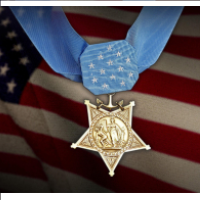Ex-Water Board Official Can Legally Lie About His Military Service
 (photo: Associated Press)
(photo: Associated Press)
It may be dishonorable to lie about your military service, but the Constitution protects your right to do so, the U.S. Supreme Court ruled Thursday in the case of a former member of the Three Valleys Municipal Water District in Los Angeles County.
In a 6-3 decision written by Justice Anthony M. Kennedy, the court struck down the Stolen Valor Act because the First Amendment “protects the speech we detest as well as the speech we embrace.” Department of Justice attorneys who defended the law, passed in 2005 and signed by President George Bush, argued that lies have no value and therefore aren’t entitled to First Amendment protection, but could only convince Justices Antonin Scalia, Clarence Thomas and Samuel A. Alito.
Xavier Alvarez had been accused of breaking the law in 2007 when he told the water board in Pomona during his first meeting as a member that he was a former Marine and Medal of Honor winner. He lied about that . . . and about flying a helicopter in Vietnam, playing hockey for the Detroit Red Wings, marrying a Mexican starlet, and getting shot rescuing the U.S. ambassador during the Iran hostage crisis.
He was eventually found out, convicted in court and fined $5,000, but dodged the law’s one-year-in-prison penalty. He appealed using an “everyone lies” defense and won in a split decision at the U.S. 9th Circuit Court of Appeals where Chief Judge Alex Kozinski asserted that “white lies, exaggerations and deceptions that are an integral part of human intercourse.” That is apparently true. A Chicago Tribune investigation in 2008 could not confirm more than a third of “Who's Who” profiles that listed top military honors.
That study would probably have vexed President George Washington, who said, in 1782 while ordering the first medals for valor in battle, “Should any who are not entitled to honors have the insolence to assume the badges of them, they shall be severely punished.”
The high court in recent years has weighed in on a number of First Amendment issues, most famously asserting in Citizens United v. Federal Election Commission that corporations are entitled to its protection. It has also upheld as free-speech the right to sell violent video games to minors and videos depicting cruelty to animals, and carry hateful signs at soldier funerals.
–Ken Broder
To Learn More:
Supreme Court Ruling on Stolen Valor Act Rests on 1st Amendment (by Tony Perry, Los Angeles Times)
Lies About Military Honors Not Illegal, Court Finds (by James Dao, New York Times)
Supreme Court to Decide on Right to Lie about Military Honors (by David G. Savage, Los Angeles Times)
- Top Stories
- Controversies
- Where is the Money Going?
- California and the Nation
- Appointments and Resignations
- Unusual News
- Latest News
- California Forbids U.S. Immigration Agents from Pretending to be Police
- California Lawmakers Urged to Strip “Self-Dealing” Tax Board of Its Duties
- Big Oil’s Grip on California
- Santa Cruz Police See Homeland Security Betrayal in Use of Gang Roundup as Cover for Immigration Raid
- Oil Companies Face Deadline to Stop Polluting California Groundwater





